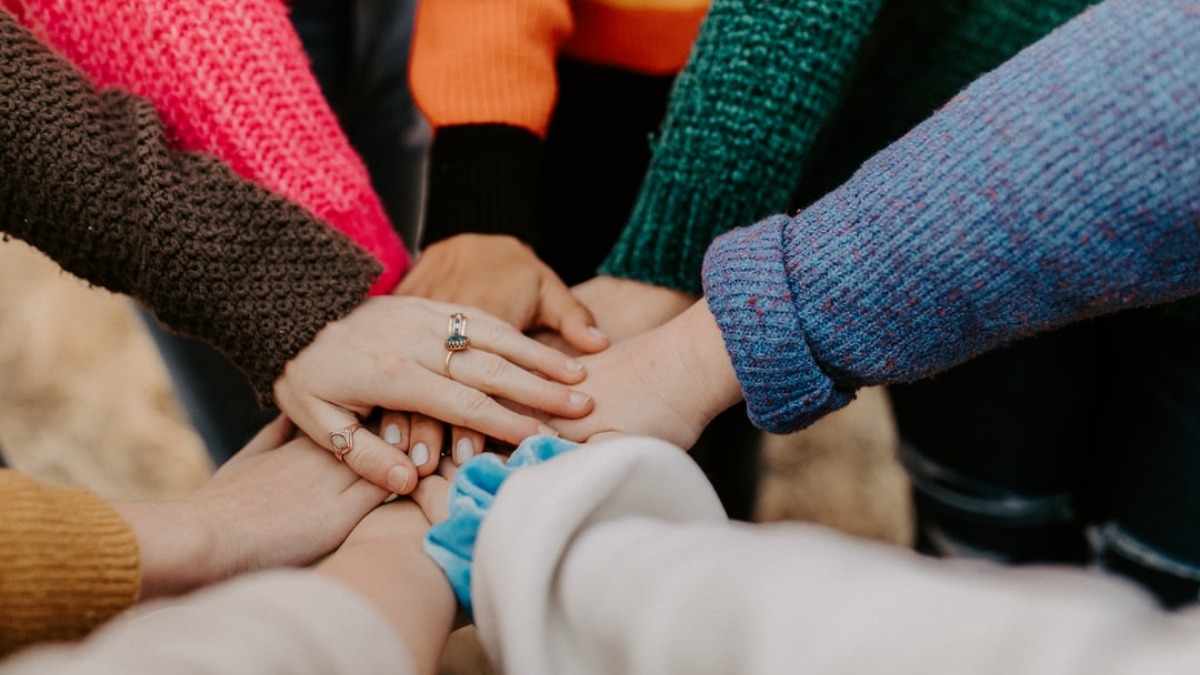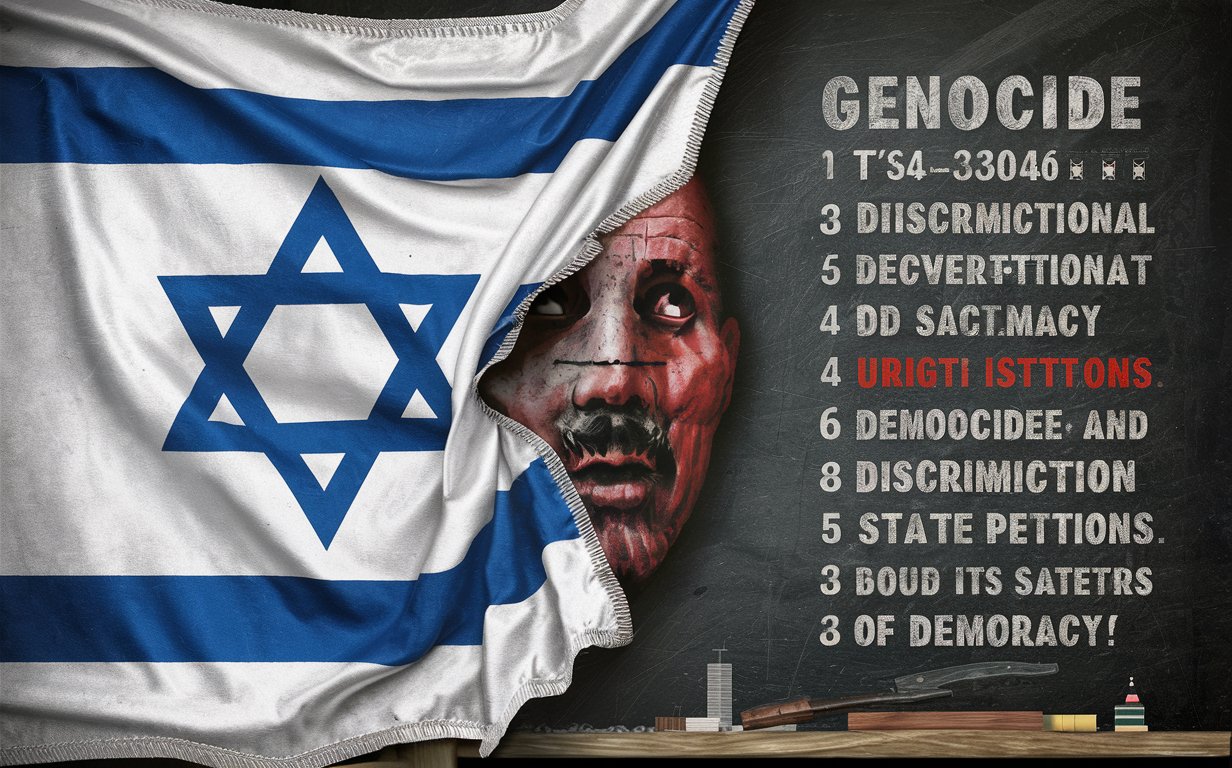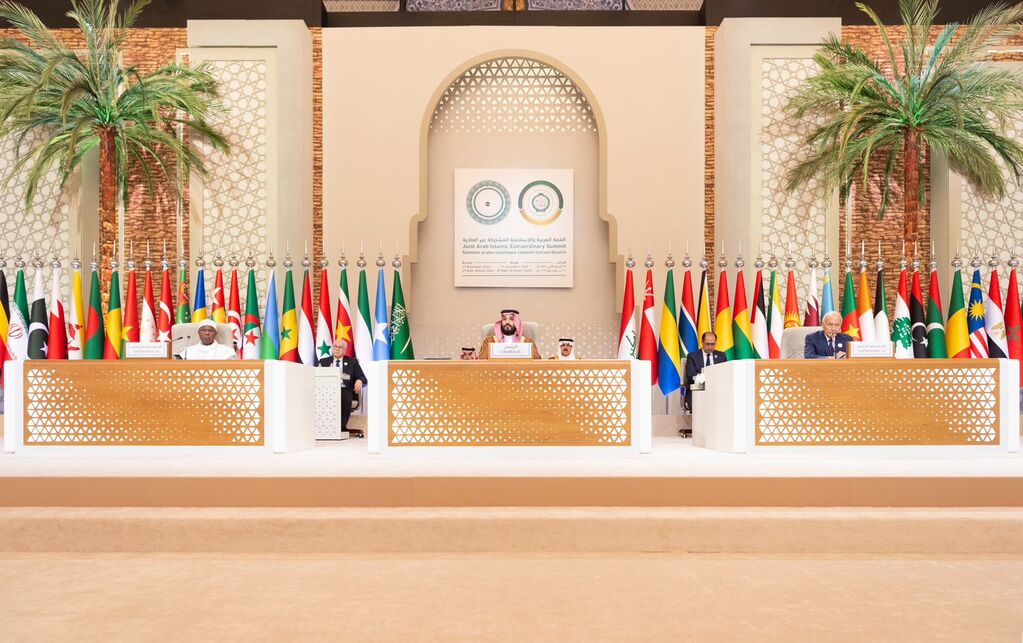Human Rights
International Women’s Day 2022

Every year, women and men around the world celebrate International Women’s Day (IWD) on March 8. The IWD has grown from a labour movement to an annual event recognised by the UN. The seeds for which were planted back in 1908, when 15,000 women marched through the streets of New York; demanding shorter working hours, higher wages and the right to vote. Clara Zetkin, an activist and advocate for women’s rights, suggested an exclusive international day designated solely for the empowerment of women. It was unanimously agreed upon at the International Conference of Working Women in Copenhagen in 1910 and first officially celebrated in 1911 in four countries. In 1975, the UN started celebrating the day internationally.

The IWD has become a day to celebrate the struggles and momentous achievements of women. On this day, we look back at how far women have come in society. The political roots of the day are still exemplified in strikes and protests to raise awareness about lasting inequality. The UN announced their theme for IWD 2022 as “Gender equality today for a sustainable tomorrow.” They will be hosting events, including an international virtual conference, to recognise how women worldwide are responding to climate change. According to the IWD’s website, this year’s selected hashtag is #BreakTheBias, which asks people to imagine “a world free of bias, stereotypes and discrimination.”
Aurat March has proven to be a phenomenal success; forcing societies to acknowledge the efforts of women.
The IWD is celebrated worldwide with festivals and protests. According to the World Economic Forum’s Global Gender Gap Report 2021, the time needed to close the global gender gap has increased from 99.5 years to 135.6 years. A 2021 study by UN Women based on 13 countries depicted that 45 per cent of women claimed that they or a woman they knew experienced some form of violence during the pandemic-with the most common forms of abuse being verbal and outright denial of basic resources.
Such statistics highlight the unfortunate realities of women worldwide. With an aim to bring about positive change, feminist groups around the world have organised demonstrations in the last few years; demanding equal working rights, abortion rights and an end to violence against women. Many campaign for their governments to revoke gender discriminative laws and push for new laws to protect women.
The first IWD march in Pakistan, known as the Aurat March, was organised by a small group of women in 2018 in Karachi who hoped to draw attention to the violence and inequality faced by women across the country. When women organised the first Aurat March, they did not expect a large turnout. However, women from all walks of life joined together to raise their voices for basic rights. Issues such as inheritance rights, rights to education, access to health services, domestic violence and equal wages were raised through speeches and placards.
Although many dismissed the massive turnout as a one-time fluke, women took it as a wake-up call. The event only increased in magnitude over the subsequent years. The march spread to a multitude of cities across Pakistan and even men began to participate in the event. Aurat March has proven to be a phenomenal success; forcing societies to acknowledge the efforts of women.
With continued support and the organisation of the annual Aurat Marches, Pakistani women hope to achieve similar milestones. Women who take part in the march display a great deal of symbolic power, but such outrage of demanding rights is limited to the more urban areas in Pakistan – Lahore, Islamabad and Karachi – even though around 63 per cent of Pakistani women live in rural areas.
While women worldwide and in Pakistan’s urban areas hope to close the wage gap and attain more positions of leadership, women from rural areas in Pakistan would like to be able to leave their homes without permission from male family members; most are currently financially and emotionally dependent on men.
Therefore, although the Aurat March provides an excellent opportunity for Pakistani women to raise their voices against the injustice they face, the march is restricted in its scope, as most of its participants are from urban towns and not subjected to the even greater barriers faced by rural women. The march seems to comprise only a small subset of Pakistan’s women: the urban and upper-middle classes. This year, protestors hope to see organisers make a greater effort to include various ethnicities, classes and sects of women in Pakistan.
Via DT

Conflict
The Israeli Colonial-Settler State Unmasked: Democracy No Barrier to Genocide

The Israeli colonial settler state has been a topic of controversy for decades. The idea of a state based on the colonisation of another people’s land has been criticised by many as a violation of human rights and international law. The recent unmasking of the Israeli colonial settler state has brought these criticisms to the forefront of international attention.

Israel’s democracy has been touted by many as a model for the Middle East. However, the reality is that the Israeli state has been accused of committing genocide against the Palestinian people. This accusation is not new, but it has gained traction in recent years as more and more evidence has come to light. Just like the historic Anglo-American colonialism in the US, Canada and Australia, Israel’s democracy has not been a barrier to genocide.
The unmasking of the Israeli colonial-settler state has been a long time coming. The international community has been calling for an end to Israel’s occupation of Palestinian land for decades. However, it is only in recent years that the world has begun to see the true nature of the Israeli state. The evidence of genocide and human rights violations has become too overwhelming to ignore.
Table of Contents
Historical Context of Israeli Settlements

Origins of Israeli Colonial-Settler State
The establishment of the Israeli state in 1948 marked the beginning of a long-standing conflict with the Palestinian people. Israel’s occupation of Palestinian land and the construction of settlements in the West Bank and Gaza Strip have been a source of tension and violence for decades. The Israeli colonial-settler state has been unmasked for what it is, with its policies of ethnic cleansing, displacement, and genocide being exposed for the world to see.
The origins of the Israeli colonial-settler state can be traced back to the early Zionist movement, which advocated for the creation of a Jewish homeland in Palestine. In the early 20th century, Jewish settlers began to arrive in Palestine, purchasing land from absentee landlords and displacing Palestinian farmers. This process of colonization continued after the establishment of the Israeli state in 1948, with the Israeli government actively promoting the settlement of Jewish Israelis in the West Bank and Gaza Strip.
Comparative Analysis of Anglo-American Colonialism
The Israeli colonial-settler state shares many similarities with historic Anglo-American colonialism in the US, Canada, and Australia. Like these former colonial powers, Israel has used violence, displacement, and genocide to maintain its control over Palestinian land. Israel’s democracy is no barrier to these policies, as evidenced by the ongoing occupation and settlement of Palestinian land.
One key difference between Israeli colonialism and Anglo-American colonialism is the role of religion in the former. While Anglo-American colonialism was often justified on secular grounds, such as the need for resources or the spread of civilization, Israeli colonialism is rooted in religious beliefs about the Jewish people’s rightful claim to the land of Israel. This has led to a particularly brutal form of colonialism, with Israeli settlers often using violence and intimidation to displace Palestinian families from their homes.
In conclusion, the historical context of Israeli settlements is rooted in the early Zionist movement’s desire for a Jewish homeland in Palestine. The Israeli colonial-settler state has been unmasked for what it is, with its policies of ethnic cleansing, displacement, and genocide being exposed for the world to see. The similarities between Israeli colonialism and historic Anglo-American colonialism are striking, with both using violence and displacement to maintain control over colonized lands.
Democracy and Its Limits
Mechanisms of Israeli Democracy
Israel has long been touted as a democratic state in the Middle East. However, the reality is that the mechanisms of Israeli democracy have been used to systematically oppress and disenfranchise the Palestinian people. The Israeli government has used a variety of tactics, such as gerrymandering and discriminatory laws, to ensure that Palestinians are not able to fully participate in the democratic process.
For example, the Israeli government has implemented a number of laws that discriminate against Palestinians, such as the “Jewish Nation-State Law” which declares that only Jewish people have the right to self-determination in Israel. This law effectively disenfranchises the Palestinian population and reinforces the idea that Israel is a colonial-settler state.
Democratic Facade and Human Rights Violations
Despite claims of being a democratic state, Israel has a long history of human rights violations against the Palestinian people. These violations include the construction of illegal settlements in the West Bank, the use of excessive force against protesters, and the imposition of a blockade on the Gaza Strip.
Furthermore, Israel’s “democratic facade” has been used to justify these human rights violations. The Israeli government often claims that it is acting in the name of democracy and national security, but in reality, these actions are designed to maintain the status quo and ensure that Israel remains a colonial-settler state.
In conclusion, while Israel may claim to be a democratic state, the reality is that the mechanisms of Israeli democracy have been used to maintain a system of oppression and disenfranchisement against the Palestinian people. The so-called “democratic facade” has been used to justify human rights violations and maintain Israel’s status as a colonial-settler state.
International Perspectives and Responses

Global Reactions to Israeli Policies
The Israeli colonial-settler state has been criticized by many countries and international organizations for its policies towards Palestine. The United Nations has passed several resolutions condemning Israel’s actions, including the expansion of settlements in the West Bank and the Gaza Strip. In addition, many countries have imposed economic sanctions on Israel in an attempt to pressure it to change its policies.
One of the most significant global reactions to Israeli policies is the Boycott, Divestment and Sanctions (BDS) movement. The BDS movement aims to put economic and political pressure on Israel to end its occupation of Palestine, dismantle the separation wall, and grant equal rights to Palestinian citizens of Israel. The movement has gained significant support from civil society organizations, trade unions, and political parties around the world.
The Role of International Law
International law has played a significant role in addressing Israeli policies towards Palestine. The International Court of Justice (ICJ) has issued several advisory opinions on the legal status of the Israeli settlements in the West Bank and the Gaza Strip. The ICJ has ruled that the settlements are illegal under international law and that Israel is obliged to dismantle them.
In addition, the United Nations Human Rights Council (UNHRC) has established a commission of inquiry to investigate the Israeli military’s conduct during the 2018 Gaza protests. The commission found that Israeli soldiers had committed war crimes and crimes against humanity by using excessive force against unarmed protesters.
Despite these international efforts, Israel continues to violate international law with impunity. The lack of accountability for Israeli officials has led to widespread criticism of the international community’s failure to take effective action to end the occupation of Palestine.
Human Rights
Commemorating Human Rights Day: False consolation for Kashmiris

Today, on December 10, 2023, the 75th anniversary of the Universal Declaration of Human Rights is being celebrated. December 10 commemorates the day in 1948 when the General Assembly of the United Nations adopted the Universal Declaration of Human Rights. Mr Antonio Guterres, the United Nations Secretary-General said, “Human rights are the foundation for human dignity, and the cornerstone of peaceful, inclusive, fair, equal and prosperous societies…They are a unifying force and a rallying cry. They reflect the most fundamental thing we share – our common humanity.”
Dr. Volker Türk, the UN High Commissioner for Human Rights said, “On this Human Rights Day, we reaffirm the universality and indivisibility of all rights, as we stand up for human rights for all.” He added, “Human rights is a force to reckon with, not because it serves the interests of the powerful, but because it has captured the imagination of the powerless…And so I will endeavour to promote advances in all human rights, without distinction, in every region, and across all UN activities.”
Besides, the Universal Declaration of Human Rights, the world body has adopted the ‘Geneva Convention’ its ‘Additional Protocols’, (1949) and International Criminal Court (ICC) (1998) for a single purpose: to defend protect, and safeguard the human rights of all. The basic human rights provisions of the Geneva Conventions including the ones protected under Common Article 3 of the conventions are non-derogable in the sense that they must be respected even in times of international and non-international conflicts, international disturbances, and foreign occupations.
The preamble of the ICC states that ICC is “mindful that during this century millions of children, women, and men have been victims of unimaginable atrocities that deeply shock the conscience of humanity” and “recognizing that such crimes threaten the peace, security and well-being of the world.”
Tragically, civilized nations have fallen from their lofty calling: namely, human rights for all mankind. There is a sad commentary on the state of human rights all over the globe. It is the job of all human rights defenders to jump-start that moral evolution.
George Bernard Shaw, world renowned political philosopher was prophetic when he said in 1940’s “Only on paper has humanity yet achieved glory, beauty, truth, knowledge, virtue, and abiding love.”
The presence of the ‘Universal Declaration of Human Rights’ ICC and other human rights instruments offers no consolation for the people of Kashmir because its framers have not lived up to its spirit, at least applying it selectively to suit the objectives of certain powers.
The people of Kashmir are perplexed as to how to interpret such joi de vivre. Over seventy-five years have elapsed since the adoption of this Declaration, but the people of Kashmir have not seen an iota of change in the human rights situation in Kashmir. For worse may be but never for the better. The latest phenomenon of settler colonial project has brought Kashmir to the brink of genocide, as articulated by Dr. Gregory Stanton, Chairman, of Genocide Watch before the United States Congress on January 12, 2022. Such international treaties are meaningless for the people of Kashmir, or Palestine or for any other people who do not see their application, or even a negative mention to those who ride roughshod over them with total impunity while enjoying the good graces of some of the members of the world community to aspire to a high moral station above others.
According to the definition of ICC, tens of thousands of Indian soldiers and scores of India officials are guilty of crimes against humanity in Kashmir. The crimes committed by 900,000 Indian military and paramilitary forces in Kashmir are a daily feature of Kashmiri life. According to Arundhati Roy, India’s legendary novelist, the 900,000 Indian soldiers have made Kashmir the largest militarized zone in the world. Indian army has organized and employed violence against civilians to create deep fear among the general population to advance the political and religious agenda of a Hindutva ideology. Does anyone seriously believe that Under ICC Statue, a single Indian soldier or an official would ever be prosecuted before the ICC? Of course NOT. India has sneered at international law for decades and the international community has just yawned.
Too often, the international community closes its eyes to the brutal reality of Kashmir because of India’s hegemony in South Asia and its potentially attractive consumer market. As a consequence, the moral suasion that could jolt India into recognizing its international law obligation to accede to self‑determination in Kashmir is blunted.
The world body and saner elements in American policy agencies should take a leaf out of the warning of Arundhati Roy, “Kashmir is the real theatre of unspeakable violence and moral corrosion that can spin us into violence and nuclear war at any moment. To prevent that from happening, the conflict in Kashmir has to be addressed and resolved.” Huff Post, Mar 1, 2019
We call upon the United Nations to use its influence in putting an end of human rights violations especially when the 75th anniversary of the Universal Declaration of Human Rights is being celebrated with great pomp. The UN needs to do more than celebrate anniversaries if it is concerned about ensuring peace, stability and security in South Asia.
Dr. Fai is Secretary General, World Kashmir Awareness Forum. He can be reached at: [email protected] www.kashmirawareness.org
Human Rights
The Role of Arab League, OIC, and UN in the Gaza Crisis for Peace

Table of Contents
Introduction
The Gaza crisis has been a longstanding and deeply entrenched conflict, with far-reaching implications for regional stability and global peace. In this opinion article, we delve into the roles played by three key organizations—the Arab League, the Organization of Islamic Cooperation (OIC), and the United Nations (UN)—in addressing the crisis and fostering a path towards lasting peace.

The Arab League: A Regional Voice
The Arab League, comprising 22 member states, has historically been a significant player in Middle Eastern affairs. Its mission is to promote cooperation, solidarity, and joint action among Arab nations. When it comes to the Gaza crisis, the Arab League has taken several steps:
- Advocacy for Palestinian Rights: The Arab League consistently advocates for the rights of Palestinians, emphasizing their right to self-determination and statehood. It has condemned Israeli actions in Gaza and called for an end to the blockade.
- Diplomatic Efforts: The League has engaged in diplomatic efforts, urging dialogue between Israel and Palestine. While these efforts have faced challenges, they remain crucial for maintaining communication channels.
- Humanitarian Aid: The Arab League provides humanitarian aid to Gaza, supporting essential services and infrastructure. However, the scale of the crisis demands sustained and expanded assistance.
The OIC: Solidarity and Advocacy
The Organization of Islamic Cooperation represents 57 member states, making it the second-largest intergovernmental organization after the UN. Its role in the Gaza crisis includes:
- Solidarity with Palestinians: The OIC stands in unwavering solidarity with the Palestinian people. It has consistently condemned Israeli aggression and called for an end to the occupation.
- Legal Advocacy: The OIC has supported legal efforts to hold Israel accountable for violations of international law. This includes advocating for investigations into alleged war crimes committed during conflicts in Gaza.
- Promoting Dialogue: The OIC encourages dialogue between Israel and Palestine, emphasizing the need for a just and comprehensive solution. It recognizes that peace cannot be achieved without addressing core issues.
The UN: A Multilateral Approach
The United Nations, as the global body responsible for peace and security, plays a critical role in the Gaza crisis:
- UN Resolutions: Numerous UN resolutions affirm the rights of Palestinians and call for an end to the occupation. However, implementation remains a challenge due to geopolitical complexities.
- Humanitarian Assistance: UN agencies provide vital humanitarian aid to Gaza, including food, healthcare, and education. Yet, the situation remains dire, with chronic shortages and infrastructure damage.
- Peacekeeping Efforts: The UN supports peacekeeping missions and facilitates dialogue between conflicting parties. However, achieving lasting peace requires sustained commitment from all stakeholders.
Conclusion: A Collective Responsibility
The Gaza crisis demands collective action. The Arab League, OIC, and UN must collaborate more effectively, transcending political differences. Here are some steps forward:
- Comprehensive Dialogue: Encourage direct talks between Israel and Palestine, addressing core issues such as borders, settlements, and refugees.
- Economic Development: Invest in Gaza’s economic development to alleviate suffering and create opportunities for its people.
- International Pressure: The international community must exert consistent pressure on all parties to comply with international law and seek peaceful solutions.
In the end, peace in Gaza is not just a regional concern—it is a global imperative. Let us work together to ensure a brighter future for all.
FAQs
The Gaza crisis refers to the ongoing conflict between Israel and Palestine, specifically centered around the Gaza Strip. It involves territorial disputes, violence, and humanitarian challenges affecting the lives of civilians in the region.
What is the Arab League, and what role does it play in the Gaza crisis?
The Arab League is an organization comprising 22 member states from the Arab world. Its role in the Gaza crisis includes advocating for Palestinian rights, engaging in diplomatic efforts, and providing humanitarian aid. The League consistently condemns Israeli actions and calls for an end to the blockade.
How does the Organization of Islamic Cooperation (OIC) contribute to addressing the Gaza crisis?
The OIC represents 57 member states and stands in solidarity with the Palestinian people. It supports legal efforts to hold Israel accountable for violations of international law and promotes dialogue between conflicting parties. The OIC emphasizes the need for a just and comprehensive solution.
What role does the United Nations (UN) play in the Gaza crisis?
The UN, as a global body responsible for peace and security, has issued numerous resolutions affirming Palestinian rights and calling for an end to the occupation. UN agencies provide humanitarian aid to Gaza, but achieving lasting peace requires sustained commitment from all stakeholders.
What steps can be taken to address the crisis and work towards peace?
Invest in Gaza’s economic development.
Exert international pressure to ensure compliance with international law.
-

 Featured3 years ago
Featured3 years agoThe Right-Wing Politics in United States & The Capitol Hill Mayhem
-

 Elections 20241 month ago
Elections 20241 month agoAnalyzing Trump’s Super Tuesday Triumph and Nikki Haley’s Strategic Moves
-

 News2 years ago
News2 years agoPrioritizing health & education most effective way to improve socio-economic status: President
-

 China3 years ago
China3 years agoCoronavirus Pandemic and Global Response
-

 Canada3 years ago
Canada3 years agoSocio-Economic Implications of Canadian Border Closure With U.S
-

 Conflict3 years ago
Conflict3 years agoKashmir Lockdown, UNGA & Thereafter
-

 Democracy3 years ago
Democracy3 years agoMissing You! SPSC
-

 Democracy3 years ago
Democracy3 years agoPresident Dr Arif Alvi Confers Civil Awards on Independence Day





















